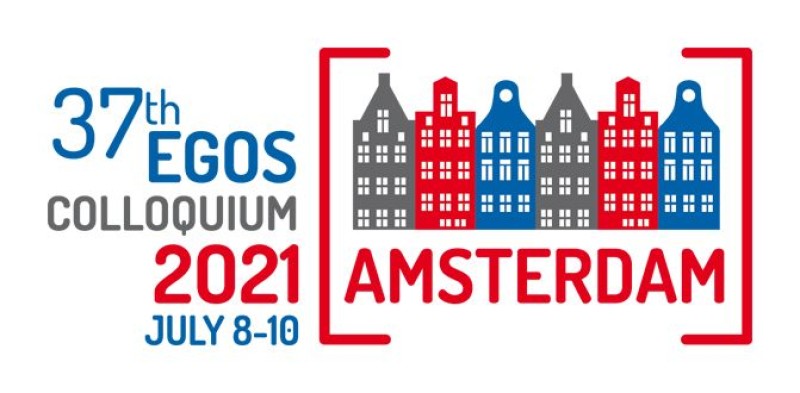Sub-theme 23: Diversity and Intersectionality: Struggles for Recognition and Redistribution in Organizations and (Self-)Entrepreneurship ---> MERGED with sub-theme 43
Call for Papers
Update
This mergend sub-theme (= previous sub-themes 23 and 43) offers a forum to scholars addressing the role
of diversity and intersectionality in organizations and entrepreneurship.
Diversity refers to the social production
and mobilization of social categories (gender, ethnicity, religion, sexual orientation, kinship, family, language etc.) to
organize in specific ways. Such categories carry political significance, as they recognize some subjects and disavow others,
include and exclude, value and distribute in specific, more or less equal, ways. Categories are, however, never defined once
and for all, they often are contested, reflecting the (potential) fragility of the social order which they reflect and may
or may not reproduce.
Contributors to the sub-theme investigate a range of organizational and entrepreneurship
phenomena ranging from intersectional organizational regimes to allyship praxis, ‘ethnic’/family/refugee (self-)entrepreneurship,
high-skilled migrants and (religious) expatriates, feminist organizing in favelas, and post-diversity organizing, to name
a few.
Call for Papers for original sub-theme 23
When employers in the US introduced
the business notion of diversity in the late 1980s (Johnston & Packer, 2000), it marked something unprecedented in the
history of capitalism: it explicitly named workers’ social identities as a repository of economic value. While the workforce
had never been demographically homogeneous, only with diversity heterogeneous social identities were explicitly recognized
as key to meet the firm’s goal to create value. Conversely, an implicit ground was laid for diverse workers’ claims of redistribution
of such value. Over 30 years later, through this sub-theme, we would like to address the following question: What has
become today of diversity’s original promise of recognition and redistribution?
This sub-theme has theoretical,
empirical and political relevance in the light of the multiplication and intensification of conflict in contemporary societies,
triggered by rising economic inequality and precarization of the livelihood of many (Bell et al., 2018; Butler, 2006; Standing,
2011). Such conflicts are fundamentally traversed by diversity ‘categories’, or ‘markers of difference’ such as class background,
gender, age, disability, sexual orientation, ‘race’, ethnicity, religion, language, nationality, rural/urban background, etc.
For instance, claims for recognition and redistribution are increasingly couched in populist, conservative, nationalistic,
and xenophobic ideologies (e.g., Burgoon et al., 2019) as opposed to a classed vocabulary of dispossession. Struggles concerning
the environment are articulated in the public arena along gender and generational lines, as well as along the city/rural areas
divide, and the North and the global South.
This sub-theme offers a forum to reconnect diversity in and around
work and organizations to these broader struggles for recognition and redistribution in and across contemporary societies
as well as their mutual articulation (Fraser & Honneth, 2003). Diversity refers to the social production and political
mobilization of social categories, to organize inequality, dispossessing some and entitling others. At the same time, the
outcome of a social process, social identities are never defined once and for all. The original promise of recognition and
redistribution can never be completely and definitively erased, making the categories of difference on which the social order
rests unstable, the locus of potential contestation and antagonism (Butler, 1990; Laclau & Mouffe, 1985).
We welcome theoretical and theoretically-informed empirical articles examining (the role of diversity in) struggles of recognition
and redistribution in, around and across contemporary organizations and organizing. Submissions might address the following
questions and more:
What categories of difference are produced and mobilized to dispossess and to entitle and how exactly? How are these categories conversely re-appropriated to reclaim recognition or redistribution?
How do recognition struggles of recent years, such as #MeToo and Black Lives Matter, affect the negotiation of social norms in organizations today?
Which role do social media play in struggles of recognition and redistribution along diversity lines?
How do firms challenge traditional social categories? With which effects on the framework of power in the broader institutional and discursive context in which they are embedded?
What are the effects of woke capitalism for struggles of recognition and redistribution?
How do categories imposed by the law interact with organizational categories to shape the dynamics of entitlement and dispossession? How are they appropriated to advance claims of recognition and redistribution?
How do political subjectivities in alternative organizational contexts (e.g. grassroots organizations, social movements, trade unions, lobby groups, cooperatives, etc.) contribute to a contemporary theory of diversity in organizations?
What can we learn from embodied, affective practices of everyday inclusion in semi-curated public places, like neighbourhoods, libraries, playgrounds, squats, etc.?
Through which discursive and material practices are diverse identities articulated in order to sustain projects of solidarity? Which established and novel social actors are today challenging existing diversity categories to struggle for recognition and/or redistribution?
References
- Bell, M.P., Leopold, J., Berry, D., & Hall, A.V. (2018): “Diversity, discrimination, and persistent inequality: Hope for the future through the solidarity economy movement.” Journal of Social Issues, 74 (2), 224–243.
- Burgoon, B., van Noort, S., Rooduijn, M., & Underhill, G. (2019): “Positional deprivation and support for radical right and radical left parties.” Economic Policy, 34 (97), 49–93.
- Butler, J. (1990): Gender Trouble. London: Routledge.
- Butler, J. (2006): Precarious Life: The Powers of Mourning and Violence. New York: Verso Books.
- Fraser, N., & Honneth, A. (2003): Redistribution or Recognition: A Political-philosophical Exchange. London: Verso.
- Johnston, W.B., & Packer, A.E. (1987): Workforce 2000: Work and Workers for the 21st Century. Washington, DC: U.S. Department of Labor.
- Laclau, E., & Mouffe, C. (1985): Hegemony and Socialist Strategy: Towards a Radical Democratic Politics. London: Verso.
- Standing, G. (2011): The Precariat: The New Dangerous Class. London: Bloomsbury.


